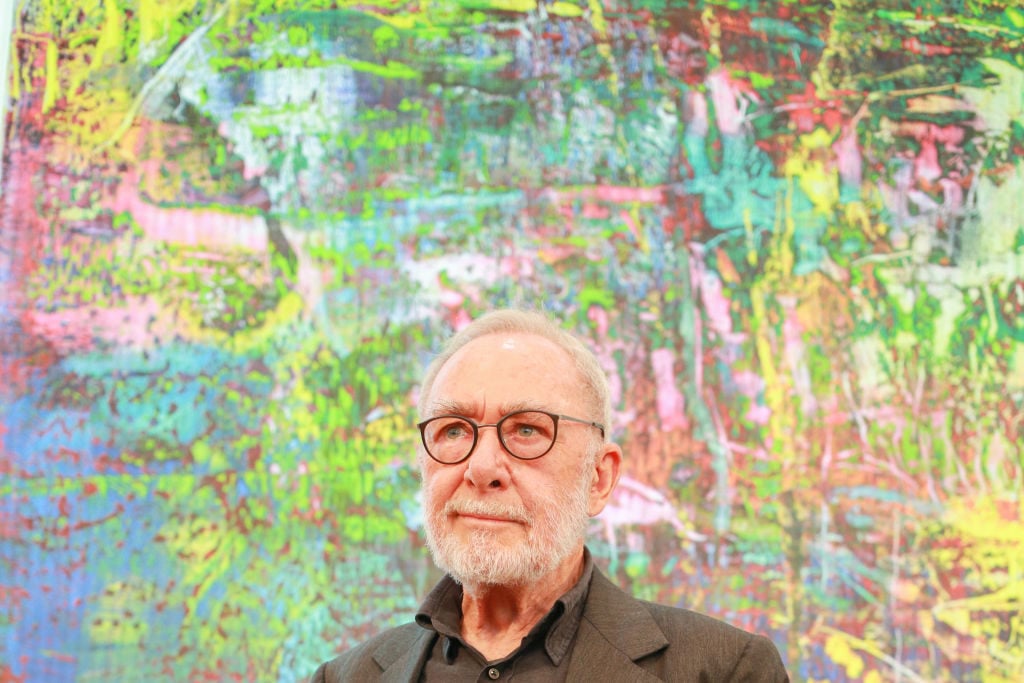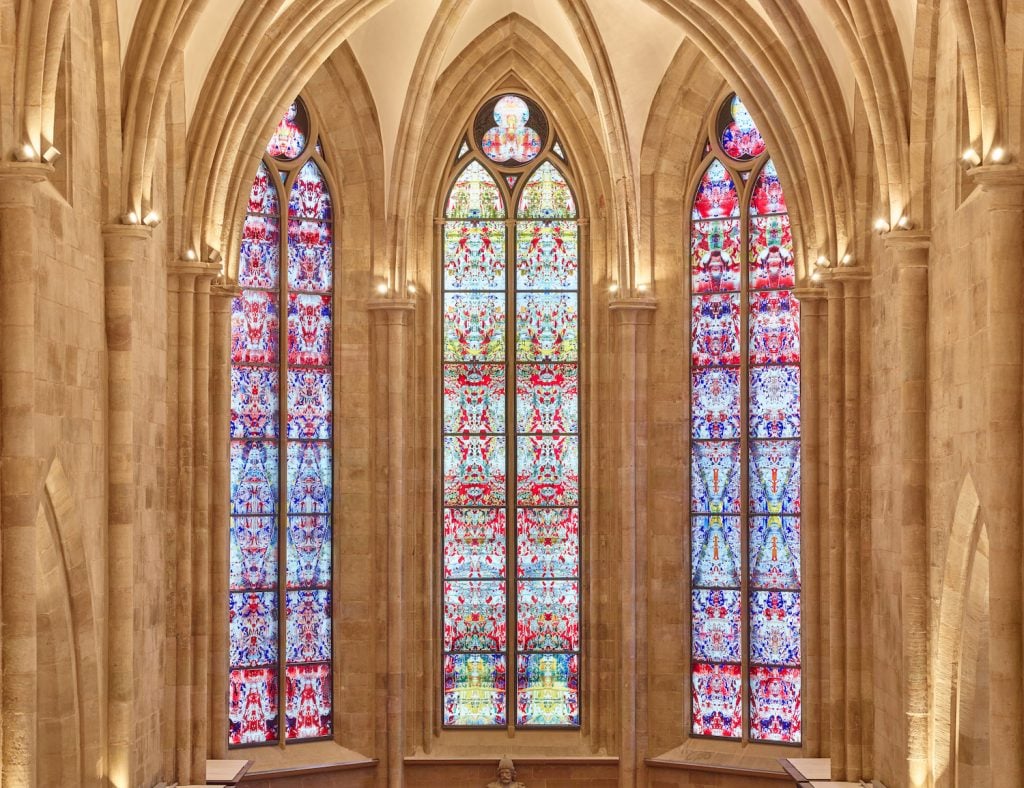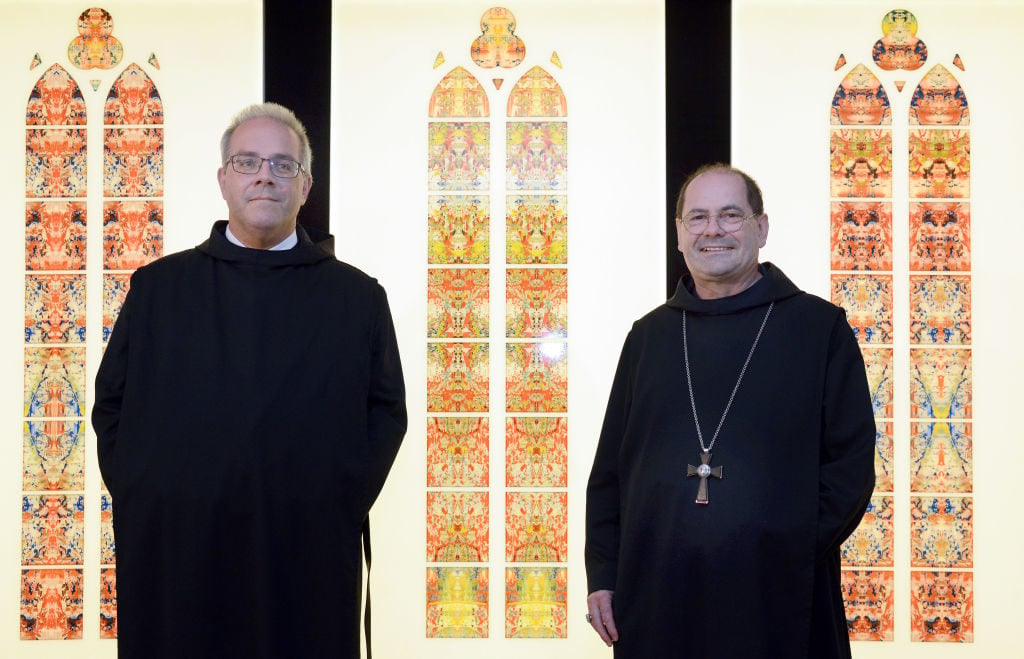On View
Calling It His Last Major Work, Gerhard Richter Unveils Kaleidoscopic Stained-Glass Windows at Germany’s Oldest Monastery
The stained glass windows were paid for by a private donation.

The stained glass windows were paid for by a private donation.

Kate Brown

The world-famous German painter Gerhard Richter has unveiled three stained glass windows at a Gothic monastery in Tholey, Germany.
The monastery, which is believed to be the oldest in the country, revealed the monumental designs on Thursday, September 17, at the benedictine abbey, which houses 12 monks.
The plan for the 30-foot-tall abstract painted works, which was first announced last summer, has been highly anticipated, especially because Richter, who is now 88, is undertaking fewer large-scale projects.
Speaking to the German press on Wednesday in Cologne, where he resides, Richter confirmed that the project, which he was at first hesitant to take on, would “certainly” be his last large numbered artwork. (The artist numbers all of his works, the monastery windows ring in at 957.)
He says he will now draw and sketch for exhibitions, among other “smaller” things.
The three windows are a donation from Richter, whose works are among the priciest in the world. The cost of their execution has not been disclosed, but was managed privately by an investor, the abbey told Artnet News.

Gerhard Richter’s new stained glass windows were unveiled in Tholey Abbey. Courtesy Tholey Abbey.
In addition to Richter’s installation, the Munich-based Afghan artist Mahbuba Maqsoodi, who is of Muslim faith, has designed 34 figurative stained glass windows for the abbey, some of which were revealed this week. The remainder will be finished by Easter 2021.
“To bring together Maqsoodi and Richter in the church was a risk, but the result is that all [the] colors have been found again. The church radiates harmony. Every time of day has a different light character,” Abbot Mauritius Choriol told the German press. “In these windows, you will always discover something new.”
The abbey, which is first mentioned in documents dating back to 634 AD, was in near financial ruin only a decade ago. Its leaders now hope that its revamped architecture will bring people back to the faith.
Richter did not travel to see the finished pieces for their unveiling, but said he was “amazed” by the outcome, which he had seen in photographs.

Abbot Mauritius Chorio, right, and Wendelinus Naumann present the window designs of the world-famous artist Gerhard Richter at the Benedictine Monastery in Tholey. Photo: Harald Tittel/picture alliance via Getty Images.
What is nearly certain is that the small town of around 2,500 people will have a new influx of art-lovers as soon as travel becomes easier. Some 100,000 guests were expected to visit the monastery in the first year, though the numbers will likely be lower due to travel restrictions.
The large choir windows were handmade in nearby Munich at Gustva van Treeck, an esteemed glass workshop. Their colorful and psychedelic motifs were derived from Richter’s 1990 “Pattern” series.
“These windows will provide the background for the entire liturgy,” Choriol said at the press unveiling. “I find it wonderful that the last secret, that is, the mystery of God, is not represented figuratively. Gerhard Richter always wanted people to think for themselves what they could find in his works.”
It is not the artist’s first church window. At the Cologne Cathedral, Richter installed a large pixelated abstract design in 2007.